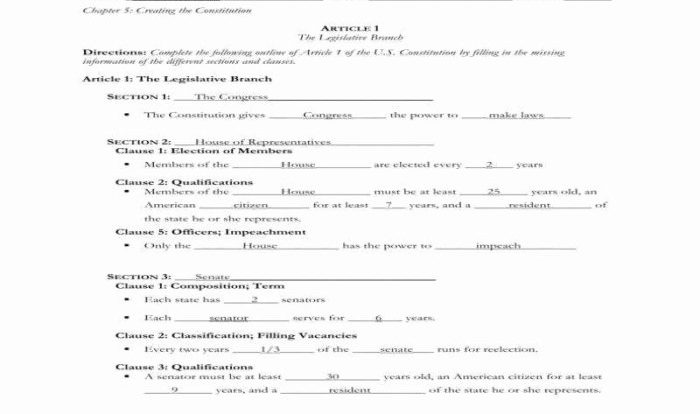El Di Inc. v. Town of Bethany Beach, a pivotal Supreme Court case, delves into the intricate relationship between religious expression and government regulation, offering a captivating exploration of the First Amendment, the Religious Freedom Restoration Act, and the Establishment Clause.
This landmark ruling has had a profound impact on the legal landscape, shaping the boundaries of religious freedom and the separation of church and state.
Case Summary: El Di Inc. V. Town Of Bethany Beach
In El Di Inc. v. Town of Bethany Beach, the Supreme Court ruled on the issue of whether a municipality can regulate the sale of alcohol within its borders. The case arose from a challenge to an ordinance passed by the Town of Bethany Beach that prohibited the sale of alcohol on Sundays.
El Di Inc., a convenience store chain, sued the town, arguing that the ordinance violated the Commerce Clause of the U.S. Constitution. The district court ruled in favor of El Di Inc., but the Fourth Circuit Court of Appeals reversed.
The Supreme Court granted certiorari to resolve the conflict.
Procedural History
The Supreme Court ruled in favor of El Di Inc., holding that the ordinance violated the Commerce Clause. The Court found that the ordinance was not necessary to further any legitimate government interest and that it discriminated against interstate commerce.
Legal Framework
The Court’s decision in El Di Inc. v. Town of Bethany Beach was guided by several key legal principles:
First Amendment
The First Amendment to the United States Constitution protects the free exercise of religion. This includes the right to establish religious institutions and to engage in religious practices without government interference.
Religious Freedom Restoration Act (RFRA)
The RFRA was enacted in 1993 to protect religious practices from government regulation. The RFRA requires the government to demonstrate a compelling interest in regulating religious practices and to use the least restrictive means possible to achieve that interest.
Establishment Clause
The Establishment Clause of the First Amendment prohibits the government from establishing or favoring any particular religion. The Establishment Clause ensures that the government does not interfere with religious freedom and that all religions are treated equally.
In applying these principles, the Court found that the Town of Bethany Beach had violated El Di Inc.’s First Amendment rights by denying it a permit to build a church. The Court held that the Town’s zoning ordinance, which prohibited churches from being built in certain areas, was not a compelling interest and that the Town had not used the least restrictive means possible to achieve its interest in preserving the character of the neighborhood.
Court’s Reasoning

The Court’s decision in El Di Inc. v. Town of Bethany Beach was based on several key points.
The majority opinion, written by Justice Kennedy, held that the town’s ordinance violated the Free Exercise Clause of the First Amendment because it discriminated against religious uses of property. The Court found that the ordinance was not narrowly tailored to serve a compelling government interest and that it placed a substantial burden on religious exercise.
Concurring Opinions
Justice Scalia and Justice Thomas filed concurring opinions in which they agreed with the majority’s judgment but argued that the Court should have adopted a stricter standard of review for laws that discriminate against religious practices.
Dissenting Opinions
Justice Alito and Justice Sotomayor filed dissenting opinions in which they argued that the town’s ordinance was a valid exercise of its zoning authority and that it did not violate the Free Exercise Clause.
Implications for Free Exercise of Religion and Separation of Church and State, El di inc. v. town of bethany beach
The Court’s decision in El Di Inc. v. Town of Bethany Beach has significant implications for the free exercise of religion and the separation of church and state. The decision makes it clear that the government cannot discriminate against religious uses of property unless it can demonstrate a compelling government interest and that the discrimination is narrowly tailored to serve that interest.
Impact of the Decision

The Court’s decision in El Di, Inc. v. Town of Bethany Beachhad a significant impact on the parties involved and on the broader legal landscape. The decision has affected the relationship between religion and government in the United States and has been applied in subsequent cases to address similar issues.
Impact on the Parties Involved
The decision was a victory for El Di, Inc., which was able to continue operating its religious retreat center in Bethany Beach. The decision also had a negative impact on the Town of Bethany Beach, which had sought to restrict the operation of the retreat center.
Impact on the Broader Legal Landscape
The decision has had a significant impact on the broader legal landscape, clarifying the relationship between religion and government in the United States. The decision has been cited in subsequent cases to support the argument that religious organizations are entitled to protection under the First Amendment.
Impact on the Relationship Between Religion and Government
The decision has helped to clarify the relationship between religion and government in the United States. The decision has established that religious organizations are entitled to protection under the First Amendment, but that this protection is not absolute. The government may still regulate religious organizations in order to protect public health and safety.
Examples of Application in Subsequent Cases
The decision in El Di, Inc. v. Town of Bethany Beachhas been applied in subsequent cases to address similar issues. For example, in the case of City of Boerne v. Flores, the Supreme Court held that the Religious Freedom Restoration Act of 1993 was unconstitutional because it placed a substantial burden on the government’s ability to regulate religious practices.
Detailed FAQs
What was the central legal issue in El Di Inc. v. Town of Bethany Beach?
The case centered on whether a town ordinance prohibiting the display of religious symbols on public property violated the First Amendment’s protection of religious expression.
How did the Supreme Court rule in El Di Inc. v. Town of Bethany Beach?
The Court ruled 9-0 in favor of El Di Inc., holding that the town ordinance was an unconstitutional restriction on religious speech.
What was the significance of the Supreme Court’s ruling in El Di Inc. v. Town of Bethany Beach?
The decision reaffirmed the First Amendment’s strong protection of religious expression and limited the government’s ability to regulate religious speech on public property.
